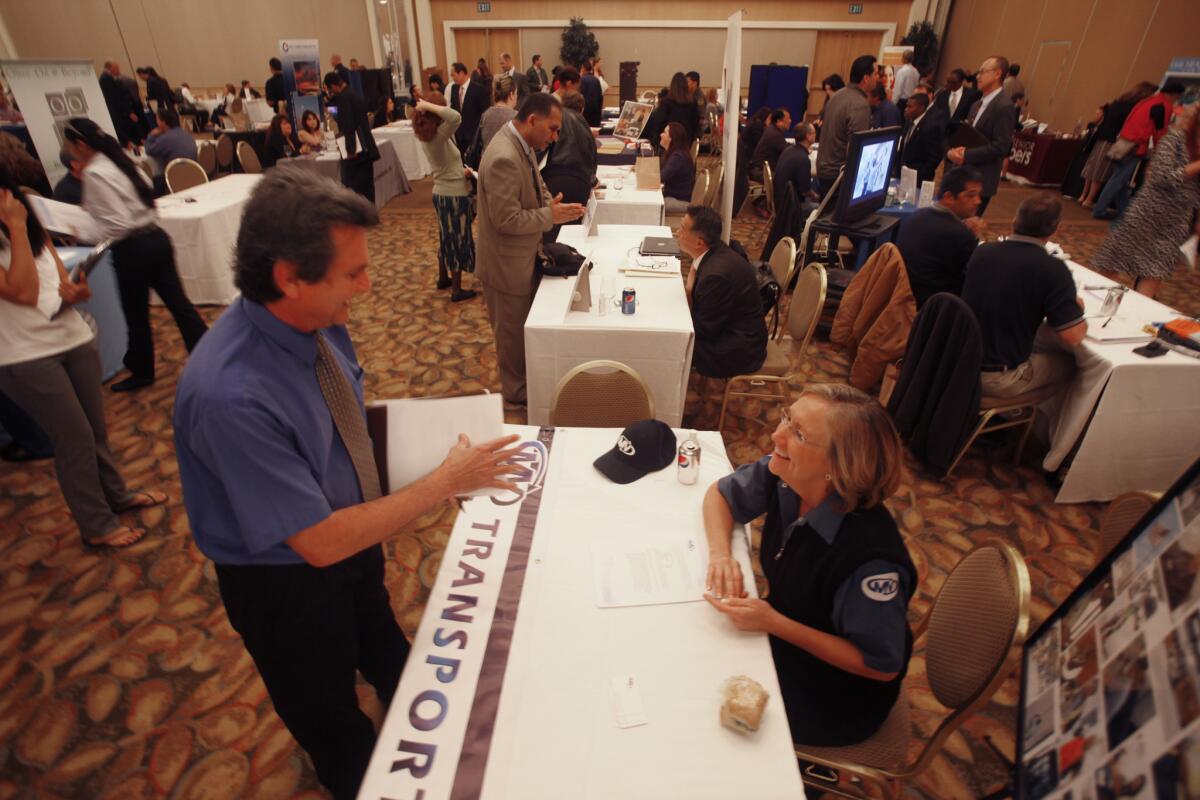Study: Nearly half of people in California are in chronic financial stress

- Share via
Nearly half of California households are in chronic financial stress and have little to no savings for emergencies, according to a report Thursday.
The study by the Corporation for Enterprise Development paints a generally dreary picture of the financial situation of low- and middle-income people -- and even many above-average wage earners -- throughout the state.
Based on various measures of overall financial well-being, California ranks 34th among the 50 states, according to the study. Unemployment, credit-card debt and personal bankruptcies all are far above the national average, the study found.
PHOTOS: Richest and poorest cities in America
Even families with above-average income are one crisis away from financial devastation, the report found. Nearly one-quarter of families with household income between $61,201 and $100,008 have less than three month of emergency savings.
“Nationally, policies at all levels of government helped stem the tide of the recession’s damage to household finances. They protected consumers from foreclosure and abusive financial practices, helped raise wages and connected families to the financial mainstream,” said Andrea Levere, president of CFED. “Without strong policies that address the challenges facing low- and moderate-income families, wealth and income inequality will continue to grow and our nation’s economy will continue to struggle.”
Californians’ finances have worsened a bit in the last 12 months, according to the study. Currently, 45.9% of residents are “liquid asset poor,” up from 44% last year.
The average Californian carries $12,693 in credit card debt, higher than that of all but four other states, according to CFED. A bit more than 17% of California jobs are low wage, although that’s less than the national average of 21%.
ALSO:
Follow Walter Hamilton on Twitter @LATwalter
More to Read
Inside the business of entertainment
The Wide Shot brings you news, analysis and insights on everything from streaming wars to production — and what it all means for the future.
You may occasionally receive promotional content from the Los Angeles Times.










